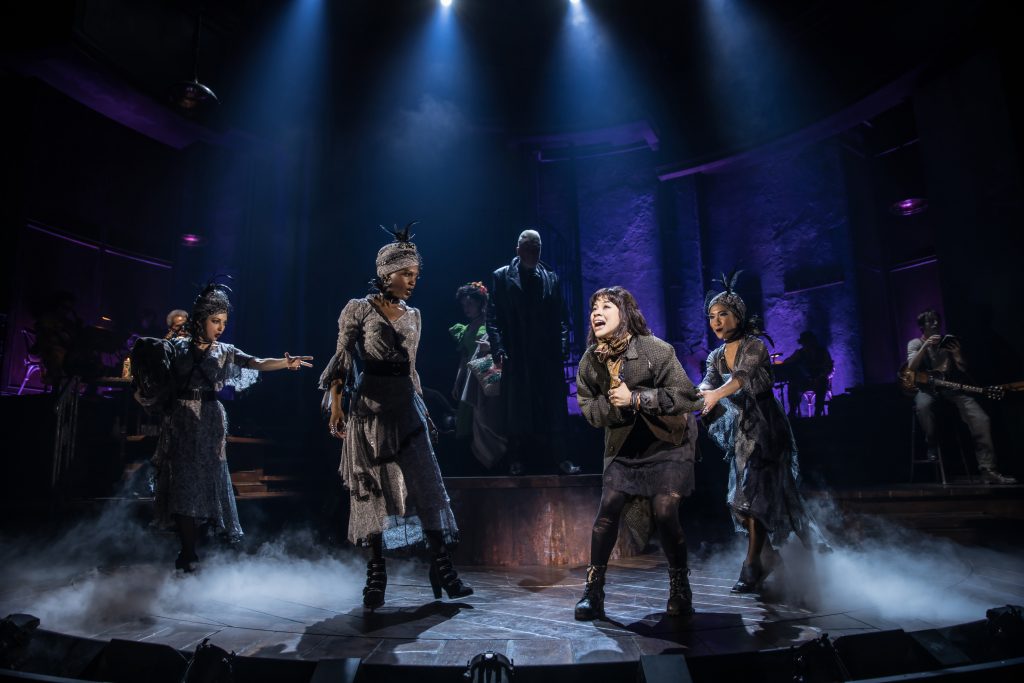
Show Tunes to Belt When you’re Having a Bad Day
Some days are just rotten. You miss your morning train. You step in gum. You get a papercut. You’re just over it.
While ‘bad days’ certainly aren’t fun, they can be improved with the right soundtrack. Whether you’re looking for a depressing ballad, an angry rock hit, or an inspiring ensemble number to lift your spirits, we’ve compiled a list of show tunes perfect for one of ‘those’ days.
These songs are ready and waiting for you when it hasn’t been your day, your week, your month, or even your year. Hit play and let’s turn that frown upside down!
“Send in the Clowns” – ‘A Little Night Music’
Kickstarting this list is a song of lament, lost love and broken promises.
Written by Stephen Sondheim for his 1973 musical, ‘A Little Night Music’, “Send in the Clowns” is sung by the ruminating Desirée. Her past rejection of her ex-lover Fredrick haunts her as she sees he has moved on with his life and is married to a much younger woman.
Sondheim’s lyrics express notions of sorrow and regret. “Send in the Clowns” plays as an ode to hindsight, whereby one must accept their predicament based upon their past choices. The sad beauty of the ballad is its relatability; everybody has experienced a moment in their life in which they wonder what would have happened if they took another path. It is this, combined with the song’s cathartic message, that makes it a quintessential ballad to belt on a bad day.
“Memory” – ‘Cats’
While this musical is often hit and miss between theatregoers, “Memory” is an iconic song with a theme of reflection. Sung by the character of Grizabella in Andrew Lloyd Webber’s seminal classic, ‘Cats’, the title comes from Grizabella’s memory of who she once was – a classy, beloved feline. A shadow of her former self, Grizabella looks for acceptance from the glaring of the Jellicle Cats.
Although ‘Cats’ has become somewhat divisive in recent years among theatre (and film) fans, the poignancy of “Memory” remains strong. The song’s musical crescendo offers its singers a chance to belt their emotions, making it a strong contender for this list.
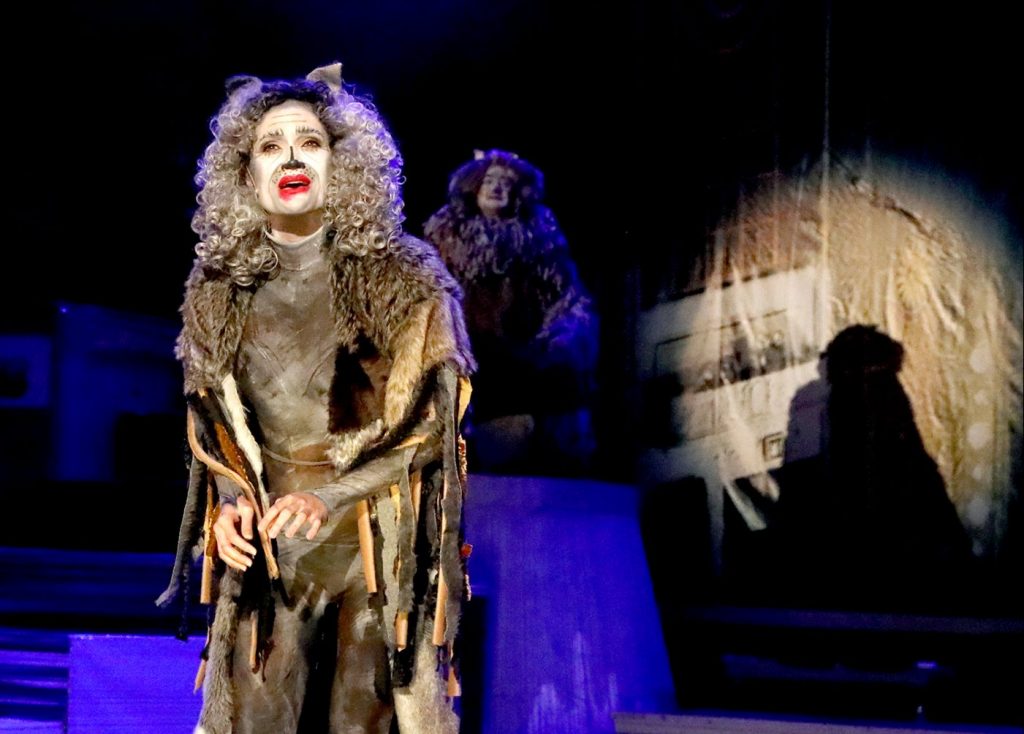
“There Are Worse Things I Could Do” – ‘Grease’
‘Grease’ has been a staple of musical theatre for nearly 50 years. Its popularity exploded after the release of the eponymous film in 1978 starring John Travolta and Olivia Newton-John. The story of a summer romance, and its infiltration into an American high school, made celebrities of the cast and remains a testament of its time. While much of the soundtrack is filled with upbeat tunes of frivolity, one stands in ‘Grease’s’ emotional core.
“There are Worse Things I Could Do” explores the self-doubts of Betty Rizzo, leader of the Pink Ladies. Her ‘tough’ reputation is called into question as she contemplates a possible pregnancy to Kenickie. While she accepts that she may be perceived a certain way in public, it’s her fear of letting herself, or Kenickie, down that, truly affects her.
For a character as strong-willed as Rizzo, “There are Worse Things I Could Do” presents a rare moment of weakness for her. Her feelings are genuine and universal which makes them all the more raw. We as listeners feel every note and thus find ourselves thinking about the worse things we could do.
“The Winner Takes It All” – ‘Mamma Mia’
Crafting ABBA’s discography into the narrative of ‘Mamma Mia’ would have been a challenge for playwright Catherine Johnson, however, the results speak (or sing) for themselves. Placing “The Winner Takes It All” at the musical’s emotional climax proved to be ingenious. As the lyrics explore the themes of love and loss, it perfectly reiterates the emotions of Donna Sheridan as she comes to terms with her ex-boyfriend’s engagement.
Donna expresses her grief to Sam with authenticity. She acknowledges that in this situation she is the ‘loser’ meaning she is left with nothing. Although the two reconcile soon after, the power of her performance denotes a belief in how unfair the world can be at times.
“The Winner Takes It All” is an eclectic little ditty which can be drawn upon in numerous circumstances. In instances when life seems unfair, singing this hit is sure to make things just a little bit brighter. That’s the power of ABBA, after all.

“I Dreamed a Dream” – ‘Les Miserables’
One of Broadway’s most famous solos is also one of its saddest. “I Dreamed a Dream” is a pinnacle of ‘Les Miserables’’ first act, serving as the narrative arc of the ill-fated Fantine. She questions the lengths she will go to to protect her daughter, Cosette. Her sorrow echoes throughout the remainder of Act I as she is faced with growing obstacles and prejudice.
The reason “I Dreamed a Dream” speaks to so many is that it reflects upon how life can interfere with future plans. The tragedy of Fantine’s predicament is heightened by the fact she is doing all that she is for the benefit of her daughter. Audiences empathise with Fantine due to a universal understanding of unfulfilled ambitions. When life disrupts your plans, whatever they may be, “I Dreamed a Dream” is a perfect song to express your feelings – the louder the better.
“There’s a Fine, Fine Line” – ‘Avenue Q’
‘Avenue Q’ has made audiences around the globe belly laugh for nearly 20 years. Its (often) politically incorrect humour is made all the more comical when you factor in that dialogue and songs are delivered by puppets. While the show is a musical comedy at its core, ‘Avenue Q’ still offers moments of raw sentimentality throughout. It’s Act I finale, “There’s a Fine, Fine Line”, is perhaps its most emotional.
After Kate Monster catches a wedding bouquet, she hopes her relationship with Princeton will develop further. However, she is left heartbroken when he stipulates that he wants to remain purely platonic. In her anguish, Kate ends their ‘friendship’. She confesses to herself that ‘there’s a fine line between love and a waste of time’.
On a bad day, “There’s a Fine, Fine Line” is an optimal song to belt out for two reasons.
One – it’s a cathartic message about recognising things that are no longer good for you will (hopefully) lift your spirits. And Two – you’ll remember which musical it comes from and can listen to the rest of the soundtrack which is guaranteed to make you laugh (and definitely won’t be a waste of time).
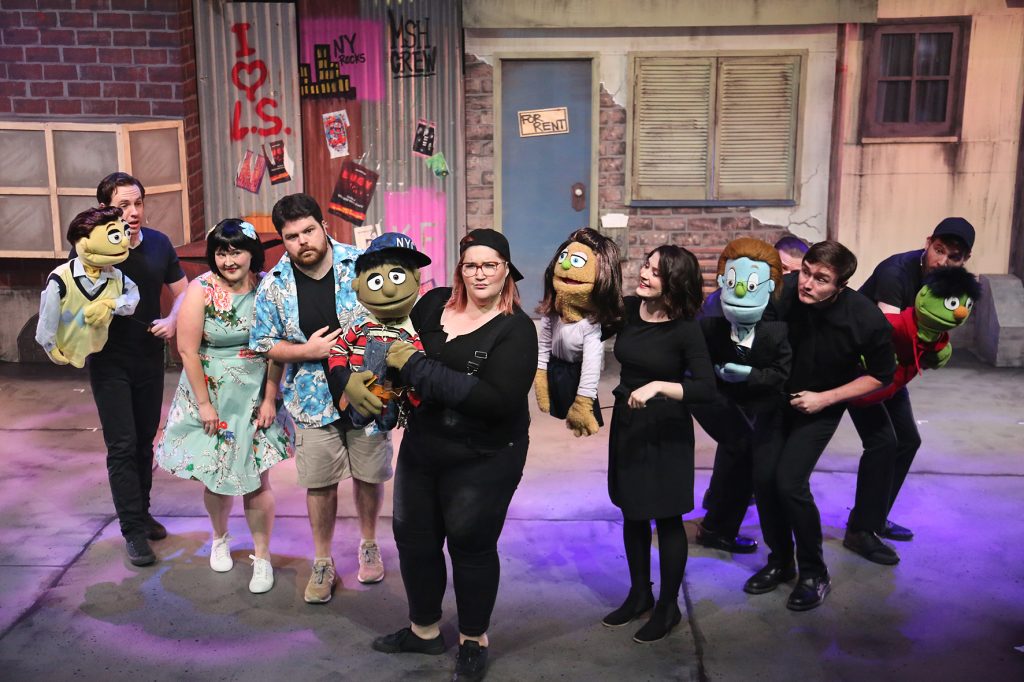
“Michael in the Bathroom” – ‘Be More Chill’
Since its off-Broadway premiere in 2018, ‘Be More Chill’ has gained traction as the musical for Generation Z. Its eclectic mix of geek culture, synth music, and electronic themes have helped establish its cult status.
After protagonist, Jeremy Heere, takes a pill containing a supercomputer (SQUIP), his high school popularity skyrockets. Unfortunately, in doing so, he inadvertently leaves his best friend Michael in his wake. Michael’s anxiety at being left behind by his friend culminates in a heartfelt solo set in the bathroom of a teenage party.
Audiences are likely to sympathise with Michael’s predicament. As friendships come and go during adolescence, the pain Michael feels is easily identifiable. The song’s simple lyrics and hummable melody are perfect for anyone who feels awkward or left out. Double points if your name is Michael and you actually sing this in a bathroom.
“Wait For Me” – ‘Hadestown’
As the 2019 Tony Award winner for Best Musical, ‘Hadestown’ creatively tells the Greek myths of Hades and Persephone, as well as Orpheus and Eurydice. The musical’s combination of Grecian mythology, American folk music, and Dystopian aesthetic make it a unique visual and aural experience for all.
As is to be expected with Greek mythology, the romance between Orpheus and Eurydice is a tragic one. Eurydice willfully follows Hades down to the underworld as she hopes to escape the harsh elements and famine she faces ‘up top’. In doing so, however, she inadvertently abandons Orpheus. His desire to reunite with her sets him on his quest down to Hadestown.
Throughout “Wait For Me”, Orpheus’ pained cries of the title reiterate the anguish he feels for being left behind. He sees them as a pair – where one goes, so too does the other. “Wait For Me” is an ode to anyone who feels like they are being left behind in some way. Belting out the chorus along with Orpheus is a must for anyone looking to do as the Grecians do.

“Cell Block Tango” – ‘Chicago’
From Ancient Greece we land in 1920s Illinois, with the perfect remedy to sing when you’re angry. What better place to start than good ol’ ‘Chicago’ and the Crook County Jail with its six merry murderesses.
What makes “Cell Block Tango” one of ‘Chicago’s most pop-ular songs is its ability to weave exposition with a catchy rhythm. Each of the ‘six’ ladies recall how they came to be in jail, each claiming mistreatment at the hands of a man. They ‘squish’ any feelings of guilt and instead claim that each man “had it coming”. As such, they each say ‘uh uh’ to being guilty. References to the eponymous city (such as the Hotel Cicero) reinforce each of their stories as personal and self-contained. With anecdotes of jealousy, slothfulness, and infidelity (why Al Lipschitz, why?), the women of “Cell Block Tango” continuously question the audience as to whether they would have done differently.
With an infectious beat and memorable lyrics, “Cell Block Tango” is as fun as it is angry. Singing this on a bad day will instantly make you feel empowered. Just remember to steer clear of anyone chewing gum…
“Rose’s Turn” – ‘Gypsy’
“Rose’s Turn” is a classic that has been covered by esteemed thespians such as Bette Midler, Angela Lansbury, and Patti LuPone. Featured deep within the second act of the musical ‘Gypsy’, “Rose’s Turn” explores the frustrations a person may feel when they realise they have neglected their own dreams in lieu of others’. This is the predicament Mama Rose finds herself in. She strives to live vicariously through her daughters. In pushing her children to succeed, she wishes to gain the same acclaimed devotion. While Rose’s motivation can certainly be labelled as corrupt, her desire for appreciation is understandable. All she asks for is a shot in the spotlight.
“Rose’s Turn” is for anyone who is seeking to make their mark on the world – anyone who is waiting for their chance. Next time it comes up on your playlist, turn the volume up high and belt it out until your cheeks are a lovely shade of red.
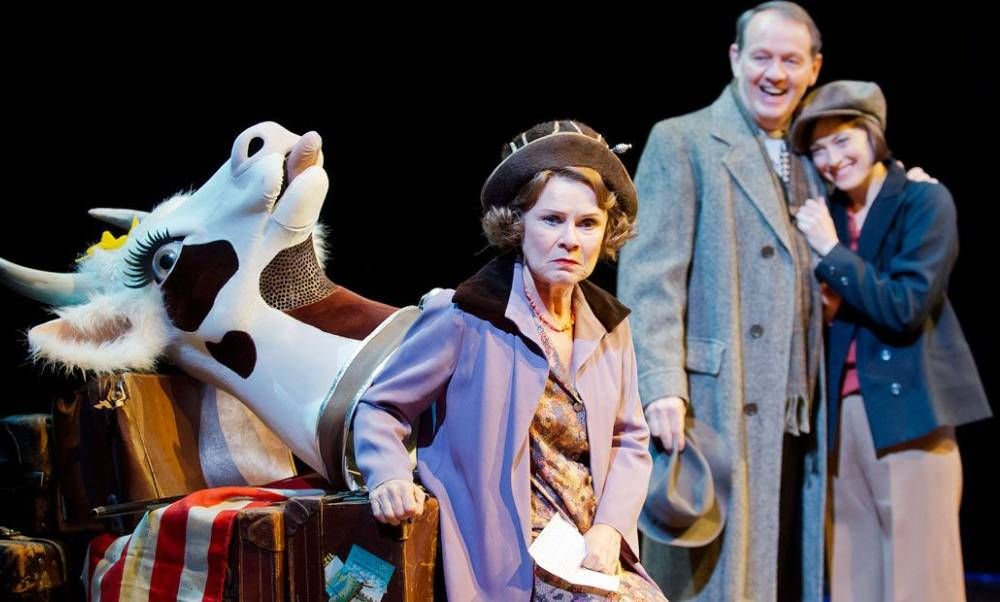
“Stick it to the Man” – ‘School of Rock’
Based on the beloved 2003 Jack Black film, ‘School of Rock’ has had audiences rockin’ and rollin’ for almost five years. With the acclaimed Andrew Lloyd Webber as a composer, his years of experience mesh well with Glenn Slater’s witty, rhythmic lyrics. Their partnership has resulted in a tour-de-force of Broadway-inspired rock.
Laissez-faire rocker Dewey Finn manipulates his way into Horace Green Academy by posing as his substitute teacher housemate, Ned Schneebly. Once there, he discovers his class’ talent for music and decides to enter them into the ‘Battle of the Bands’ competition. To inspire his young musos, Dewey instructs them each to delve into their deepest gripes with the world. He then tells them to use this frustration as a tool for their music, amounting to a rousing ensemble number – floor procession and all.
Lloyd Webber and Slater’s song is a call to musical arms against the everyday irritations we all face. Next time you feel annoyed, remember it’s okay to “rant and rave and scream and shout”. Just make sure to do it “as loudly as you can!”
“Hasa Diga Eebowai” – ‘Book of Mormon’
Helmed by Trey Parker and Matt Stone, the writers of ‘South Park’, ‘The Book of Mormon’ is as hilarious as it is offensive. Targeting practically everything and everyone, the show has garnered recognition for its tongue-in-cheek mentality.
‘The Book of Mormon’ tells the story of missionaries Elders Price and Cunningham and their pilgrimage to convert the citizens of Uganda to the Church of Latter-Day Saints. However, upon arriving in their assigned country, the two realise they have their work cut out for them. With residents battling famine, health crises, and disillusionment in a higher power, they know they have to reach the villagers with more ‘creative’ means.
“Hasa Diga Eebowai” is certainly not a family-friendly song. However, its satirical lyrics and sardonic melody make it one of the musical’s most catchy tunes (perhaps in a three-way tie with “Turn It Off” and “Hello”). Belting “Hasa Diga Eebowai” will likely not only relieve stress, but make you laugh out loud as well. Just make sure you’re out of impressionable earshot.
Ps. Please be warned of explicit nature in ‘Hasa Diga Eebowai’.
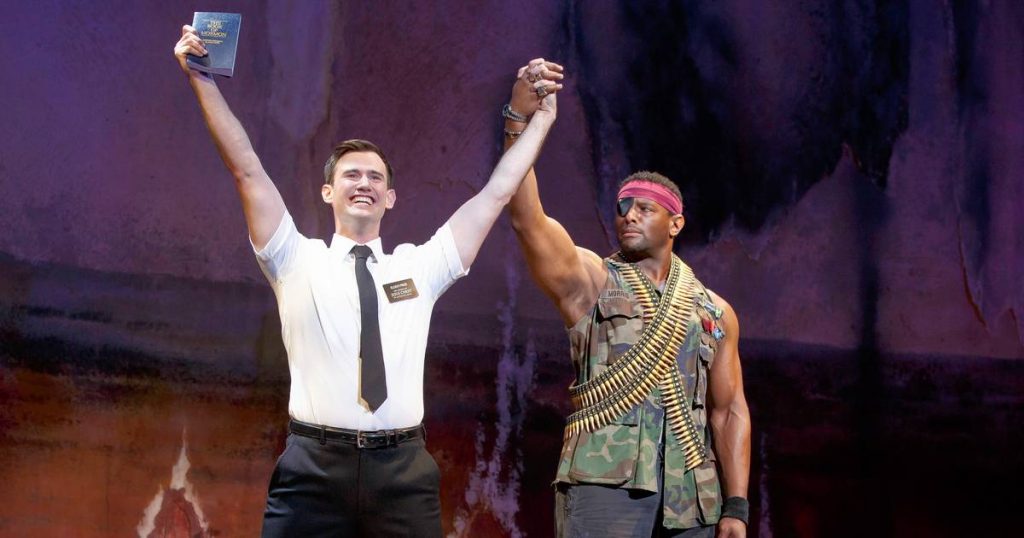
“Betrayed – ‘The Producers’
After his musical ‘Springtime for Hitler’ becomes a Broadway smash, Max is jailed for tax fraud. His business partner, Leo Bloom, escapes to Rio with their actress/receptionist Ulla. This revelation leaves Max feeling steamed and (surprise, surprise) ‘betrayed’.
The song’s comical lyrics and timing make it effortlessly fun. However, at its core, it also establishes Max’s wounded ego. Max may have been robbed of his profit, but it is the trust Leo stole from him that hurts the most. The betrayal even results in Max hallucinating about someone else’s childhood (don’t forget your chores, Alvin!)
Equal parts angry and hilarious, “Betrayed” is a great option to sing when you need to let off some steam, but also have fun. Or when walking through alfalfa with a collie named Rex.
“Hakuna Matata” – ‘The Lion King’
Before ‘Shrek’ smashed the highest-grossing animated film record in 2001, there was a little film that broke all perceived glass ceilings seven years earlier. Now 26 years after its release, ‘The Lion King’ still claims the record for highest-grossing traditionally animated feature film in history. Not too shabby for a show inspired by ‘Hamlet’ with African animals.
Due to the film’s colossal success, a musical adaptation premiered on Broadway in 1997. Its popularity and legacy remain as strong as ever two decades later. ‘The Lion King’ explores a range of themes and emotions throughout, some of which are considered quite heavy. This has made it all the more important to include moments of levity in the show. Arguably its most popular being the introductory song of Timon and Pumbaa, “Hakuna Matata”.
The two tell a young Simba to “put the past behind him”. A jovial moment of carefree friendship, “Hakuna Matata” is one of the easiest songs to sing along within ‘The Lion King’. The moral of the song can be a bit slimy at times but singing along to it is oh so satisfying.
“You Will Be Found” – ‘Dear Evan Hansen’
Even on a bad day, having hope is important. That is a particularly poignant message within the Broadway musical, ‘Dear Evan Hansen’. At the memorial service for Connor Murphy, a teenager who took his own life, Evan Hansen delivers an empowering speech about connecting through loneliness. Although Evan and Connor were never really friends, the former’s moving words about the latter go viral. His speech serves as an inspiration for many around the globe who identify with the type of loneliness he conveys. It creates a universal, supportive network.
“You Will Be Found” is an impactful Act I closing number. Its comforting message of hope is spread not only across the stage but into the audience also. Listening to “You Will Be Found” at the end of a bad day reinforces its sentiment that ‘you are not alone’. As we near the end of 2020, perhaps this message is more imperative than ever.
As you listen, remember to never go to bed angry. Even on bad days, there is a promise of a good one just around the corner. And yes, it will find you.
Which musical number do you belt out when you’re having a bad day? Make your voice heard in the comments below.
Alternatively, listen to our Show Tunes to Belt on a Bad Day Playlist! Alternatively, have a good day with this playlist.






